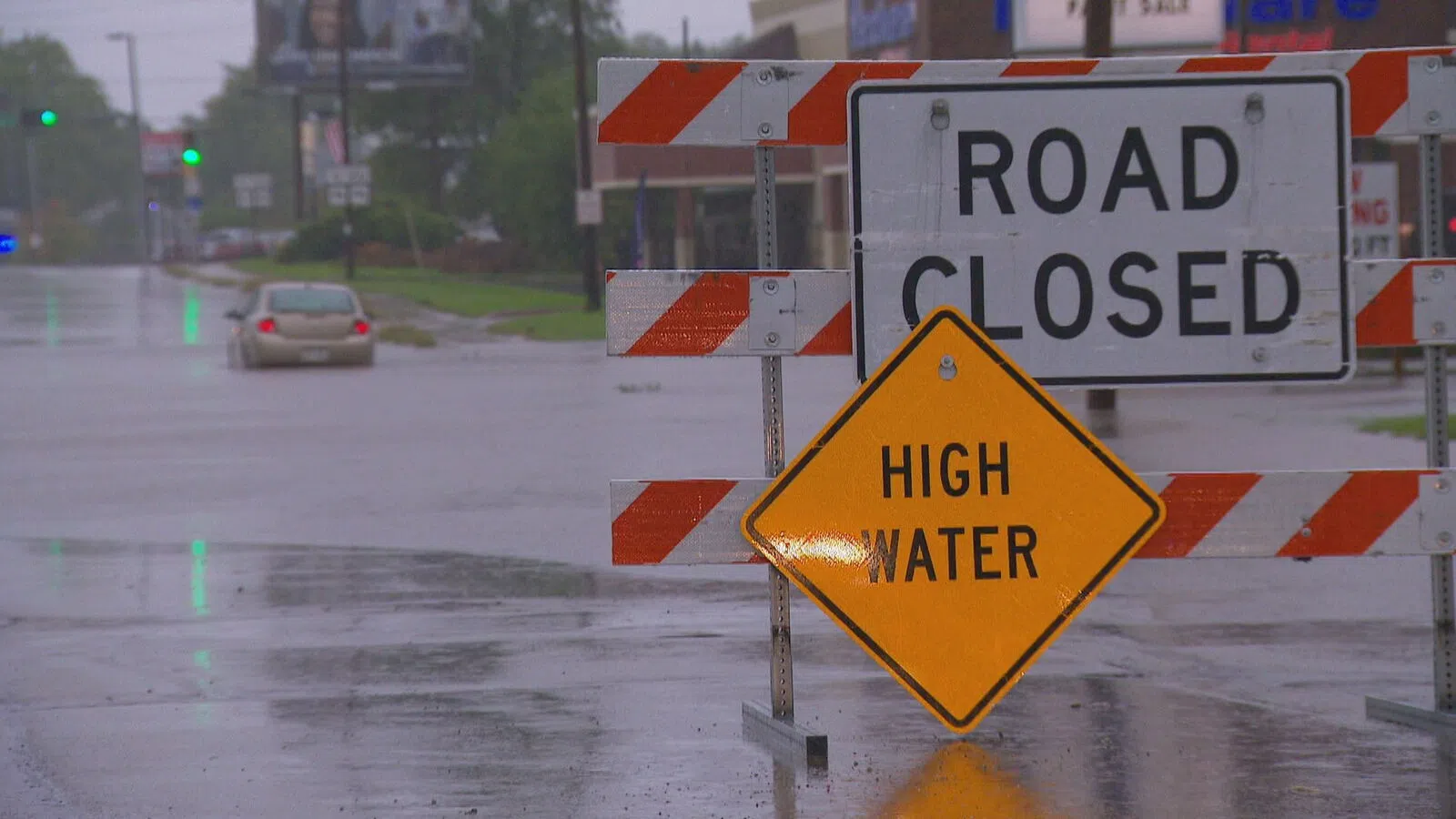
Water fills a street in Green Bay on September 11, 2019. PC: Fox 11 Online
(WTAQ-WLUK) — Before spring arrives, Wisconsinites are encouraged to prepare now for flood season.
Flooding is one of the most common and devastating natural disasters in Wisconsin.
To encourage everyone in the state to be prepared, Gov. Tony Evers has declared Feb. 24 -28 as Flood Safety Awareness Week in Wisconsin.
“Flooding can happen without warning, whether it’s caused by heavy rain or snowmelt,” said Greg Engle, Wisconsin Emergency Management administrator. “As extreme weather events become more frequent and unpredictable, it is important for Wisconsinites to be aware of flooding risks and take steps to protect themselves and their property.”
Home and property owners can assess the potential for flooding on their property if they live in a flood plain, near a body of water, or have a basement. The Federal Emergency Management Agency has a Flood Map Service Center to find official flood maps and access other tools to understand flood risk.
While some areas are more susceptible to flooding, every part of the state has a potential risk. In fact, roughly 25% of all national flood insurance claims come from properties outside designated flood plains, according to the National Flood Insurance Program.
While you can’t always stop waters from rising, the following tips can reduce the devastating effects of flooding:
- Stay informed. Be aware of weather forecast information, whether its heavy rain or a warmup that causes snowmelt. Have more than one way to receive weather warnings. Enable Wireless Emergency Alerts on your cell phones to be alerted of imminent threats in your area.
- Protect your family. Create an emergency plan so you and your loved ones know what to do and where to go in case there is a flood. Practice the plan and make sure everyone knows what to do when a flood warning is issued. Make a list of emergency numbers and important contacts.
- Consider flood insurance. Most homeowner, rental, and business insurance policies generally do not cover flooding. Don’t wait until it’s too late. Most flood coverage requires 30 days to take effect. Find more information about flood insurance options here.
- Keep water out of and away from your house. Clean gutters regularly, direct downspouts away from your foundation, repair cracks in your foundation, improve grading so water flows away from your house, and cover window wells.
- Move valuables out of the basement. Elevate or flood-proof your washer, dryer, water heater, and HVAC systems. Relocate electrical outlets to three feet above the floor.
Follow these tips during and after a flood:
- Never drive or walk through flooded areas. Turn around, don’t drown! It takes 12 inches of water to carry away a small car. Be especially careful while driving at night. It is important to also not walk through floodwater. Just six inches of fast-moving water can sweep adults off their feet. Floodwater may also be contaminated by sewage or chemicals and can hide downed power lines or debris that may cause injuries.
- If your home floods, follow cleaning and disinfection guidelines to avoid mold growth.
- If the power goes out for more than four hours, throw out refrigerated food or any food that came into contact with floodwater.
- If your drinking water well is flooded, disinfect the well and test the water to make sure it’s safe before drinking it.
- If you use a generator, keep it outside at least 20 feet from your home to avoid illness or death from carbon monoxide, which can occur in enclosed spaces.







Comments